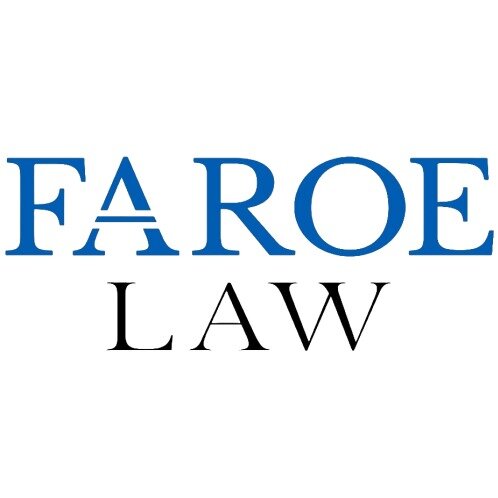Best Administrative Lawyers in Faroe Islands
Share your needs with us, get contacted by law firms.
Free. Takes 2 min.
Or refine your search by selecting a city:
List of the best lawyers in Faroe Islands
About Administrative Law in Faroe Islands
Administrative law in the Faroe Islands plays a crucial role in regulating the actions of the government and its agencies. Like other Nordic countries, the Faroese administrative system is designed to ensure transparency, accountability, and fairness in public administration. The legal framework governs the relationship between public authorities and individuals or companies, outlining the processes for decision-making, rights to appeal, and the enforcement of laws. Understanding the administrative legal landscape is essential for anyone interacting with government or public services, as it can significantly impact various aspects of civic life and business operations.
Why You May Need a Lawyer
There are several situations where legal assistance in administrative law might be necessary in the Faroe Islands:
- Appeals against governmental decisions: If you disagree with a decision made by a public body-such as a refusal of a permit, license, or any other entitlement-you may need a lawyer to help navigate the appeals process.
- Compliance with regulations: Businesses often require legal guidance to ensure compliance with local regulations concerning environmental standards, tax obligations, or labor laws.
- Public procurement disputes: Companies participating in public tenders may need legal assistance in the event of disputes concerning procurement procedures or unfair treatment.
- Data protection issues: With increasing focus on privacy, understanding and navigating data protection laws can require expert legal advice.
- Challenges to administrative procedures: Individuals and organizations can seek legal redress when they believe that administrative processes have been unfair or improper.
Local Laws Overview
The Faroe Islands have a hybrid legal system influenced by both Danish law and local Faroese regulations. Key aspects include:
- Public Administration Act: This act provides comprehensive guidelines on how public authorities should conduct their activities, emphasizing the principles of legality, transparency, and equity.
- Access to Information Act: Ensures the public's right to access government information, fostering transparency and accountability in administrative processes.
- Environmental Protection and Planning: Stringent regulations exist to safeguard the natural environment, impacting sectors such as fishing, farming, and tourism.
- Tax Regulations: Govern how taxes are collected and managed, affecting individuals and businesses alike.
- Social Welfare and Labor Laws: Address the rights and responsibilities of employers and employees, including those related to social welfare benefits.
Frequently Asked Questions
1. What is administrative law?
Administrative law involves the rules and regulations that public bodies must follow and provides a legal framework for decision-making and appeals in government operations.
2. How can I challenge a decision made by a government agency?
You can file an appeal or a complaint, often starting with the agency itself and potentially escalating to higher administrative bodies or courts if necessary.
3. What rights do I have in an administrative proceeding?
You generally have the right to be heard, to access information related to your case, and to have a decision made within a reasonable timeframe.
4. Are there formal procedures to request information from government bodies?
Yes, the Access to Information Act outlines your rights to request and receive information from public agencies, subject to certain exemptions.
5. How do administrative laws affect businesses in the Faroe Islands?
Administrative laws cover regulations businesses must follow, including licensing, environmental compliance, tax obligations, and labor laws, impacting how they operate.
6. Can decisions made by administrative bodies be appealed?
Yes, many administrative decisions can be appealed through internal agency processes or external review mechanisms, depending on the nature of the decision.
7. What should I do if I believe an administrative decision is discriminatory?
You can file a complaint with the relevant agency, an ombudsman, or seek legal advice to explore further action through administrative or legal channels.
8. How are environmental regulations enforced?
Environmental regulations are enforced by specific governmental bodies, which monitor compliance and have the authority to issue penalties for violations.
9. Do I need a lawyer to interact with administrative bodies?
While not always necessary, having a lawyer can be beneficial for understanding complex regulations, ensuring proper compliance, or litigating disputes.
10. How do data protection laws impact me?
Data protection laws govern how your personal information is collected, stored, and used by public bodies and private organizations, ensuring your privacy rights.
Additional Resources
For further assistance, consider reaching out to the following resources:
- Faroese Ombudsman: Provides assistance with complaints against public authorities.
- Local Bar Association: Offers referrals to qualified administrative lawyers.
- Government Offices: Each ministry or local authority office can provide specific information on the laws and regulations they enforce.
- Public Libraries: Have resources and publications concerning Faroese law and administrative procedures.
Next Steps
If you need legal assistance in administrative matters, follow these steps:
- Identify the relevant legal area: Clearly define the issue or decision you wish to address or challenge.
- Seek preliminary information: Utilize available resources to understand your rights and obligations.
- Consult with a lawyer: Engage a lawyer specializing in administrative law to provide detailed guidance and representation if necessary.
- File necessary documentation: Work with your lawyer to prepare and submit all required documents for appeals or complaints.
- Attend hearings or meetings: Be prepared to present your case or argument in administrative hearings or consultations.
Lawzana helps you find the best lawyers and law firms in Faroe Islands through a curated and pre-screened list of qualified legal professionals. Our platform offers rankings and detailed profiles of attorneys and law firms, allowing you to compare based on practice areas, including Administrative, experience, and client feedback.
Each profile includes a description of the firm's areas of practice, client reviews, team members and partners, year of establishment, spoken languages, office locations, contact information, social media presence, and any published articles or resources. Most firms on our platform speak English and are experienced in both local and international legal matters.
Get a quote from top-rated law firms in Faroe Islands — quickly, securely, and without unnecessary hassle.
Disclaimer:
The information provided on this page is for general informational purposes only and does not constitute legal advice. While we strive to ensure the accuracy and relevance of the content, legal information may change over time, and interpretations of the law can vary. You should always consult with a qualified legal professional for advice specific to your situation.
We disclaim all liability for actions taken or not taken based on the content of this page. If you believe any information is incorrect or outdated, please contact us, and we will review and update it where appropriate.
Browse administrative law firms by city in Faroe Islands
Refine your search by selecting a city.













